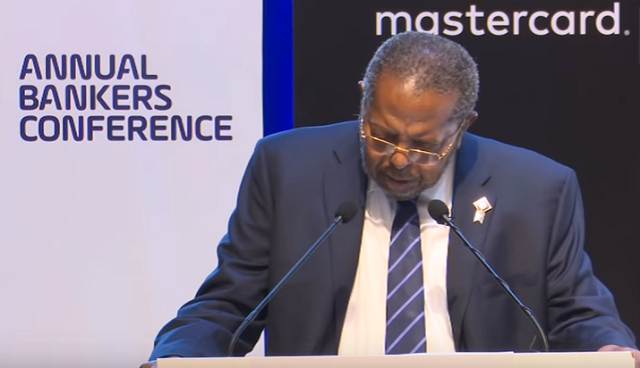
He also said the future of banking should be focused on innovating new products that target key sectors like agriculture where majority of the population earn a living and small and medium enterprises which are the engines for future economic growth.
Fabian Kasi, the chairperson of UBA and managing director of Centenary Bank told participants to take stock of this reality and, in pursuit of solutions, gain insights from global, regional and country specific issues, trends and drivers in the banking and financial services.
“The right to access financial services is real; things like financial inclusion and penetration, financial literacy are important social impact indicators worldwide,” Kasi said, adding the recent financial crisis and economic challenges in several countries are forcing banks and regulators alike to adapt and evolve innovations in order to face the challenges ahead.
He listed the things that make him optimistic that the future of banking in Uganda is bright. Among them is strong regulation which, he said, has enabled banks to survive the bad economic situation in Uganda. He said banks are also investing in research and innovations and taking initiatives to manage operating costs and lower interest rates. He cited the setting up of the Asset Reconstruction Company (ARC), which will independently handle bad loans on behalf of banks.
According to Patrick Mweheire, the CEO of Uganda’s biggest bank; Stanbic, the current situation requires banks to think outside the box if they are to improve future performance. He said the current industry’s net profit of Shs500 billion recorded every year for the last five years is too small to stir the sector’s growth strategy.
Future of banking
The bankers plan to deepen financial inclusion mainly through agency banking. Appointed agencies; including petrol stations, supermarkets, mobile money points, and others are expected to take banking closer to the people.
Innovations around transitioning from manual to digital technologies are expected to result in improved efficiencies and faster service delivery to customers. Together, agency banking and digitization are expected to lower operational costs and spark a cycle of lower lending rates, increased private sector business and personal credit uptake, more economic activity and jobs.
However, Mutebile, who has been at the helm of the BoU for the last 16 years, cautioned that as banks go digital and embrace other forms of banking and innovations, they need to avoid being exposed to greater credit risk. It is essential that this expansion [in loan portfolio] be accompanied by strengthening of banks’ risk management strategies, he said.
Cautious regulation
In separate interviews with The Independent on July 20, a day after the conference, Charles Ocici, a former banker at the defunct Uganda Commercial Bank and The Eastern and Southern African Trade and Development Bank (PTA) said the attitude of the regulator towards monitoring and supervision will be instrumental in making banking a success story in future.
Ocici, who is currently the executive director of Enterprise Uganda, a UNDP funded organisation, said banks in future should put more emphasis on preventing bad loans that come as a result of borrowers doctoring cash flow financial statements in pursuit for loans.
“The element of honesty is lacking,” Ocici said. He added that the planned digitalisation, product innovations, and new forms of banking will not succeed unless banks operate in a professional manner.
Isaac Nkote, a senior economics lecturer at Makerere University Business School told The Independent that if commercial banks are going digital, the Central Bank too needs to invest in similar digital tools to be able to efficiently monitor the evolving technology in banking.
“We have to be more vigilant and thorough in terms of supervision,” Nkote said.
He suggested that a new policy be designed to direct commercial banks to recapitalise annually by a certain percentage to avoid reoccurrence of the recent systematic risk that Crane Bank and others were about to pose to the industry and the economy in general.
Quick facts
For the past years, banks in Uganda have mobilised Shs16 trillion in deposits, which is equivalent to 17% of the GDP and have extended private sector credit worth Shs12 trillion, which is about 13% of the GDP. Fabian Kasi; the UBA Chairperson, says banks combined are the largest tax contributors to this economy and that they employ many people.
****
 The Independent Uganda: You get the Truth we Pay the Price
The Independent Uganda: You get the Truth we Pay the Price





